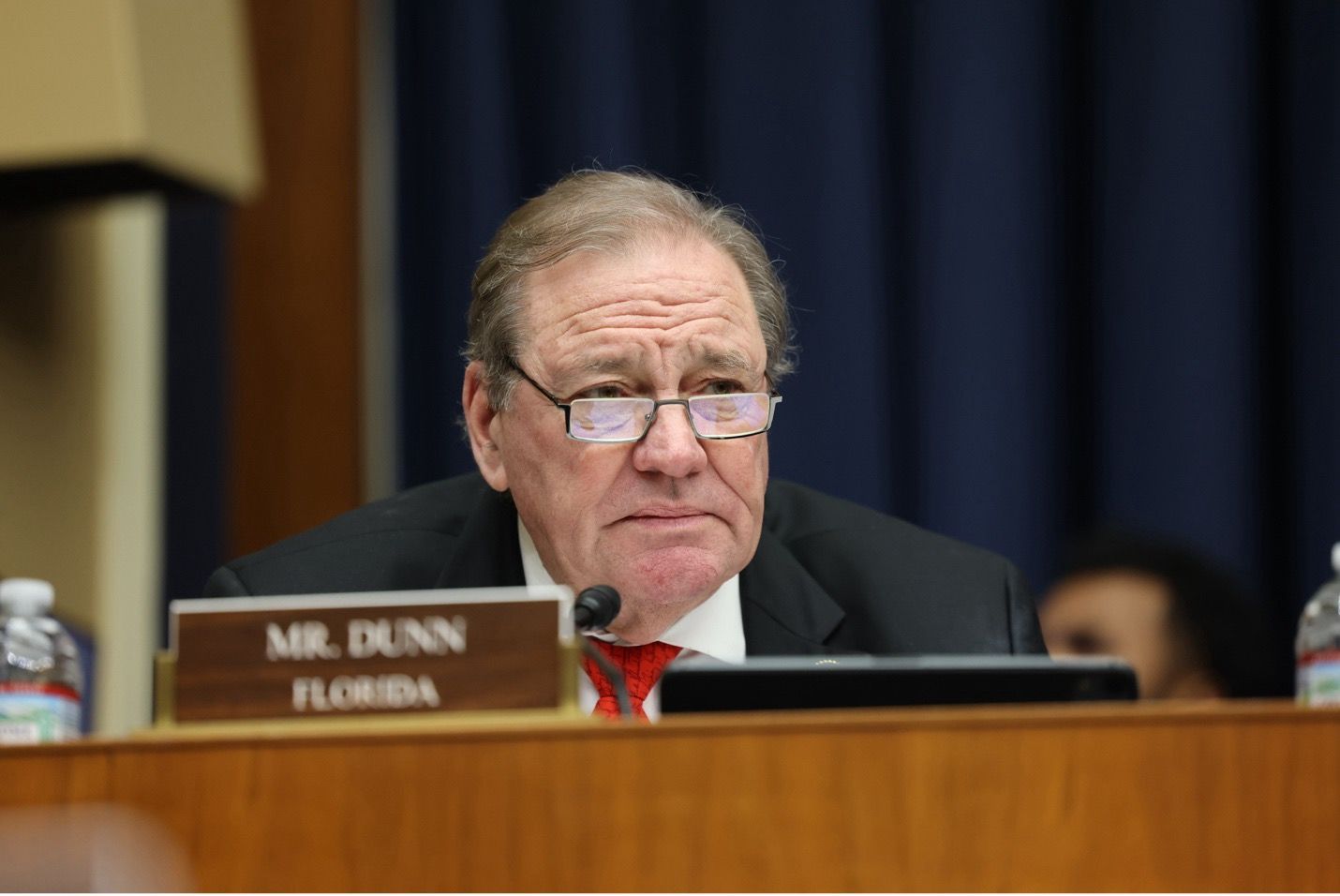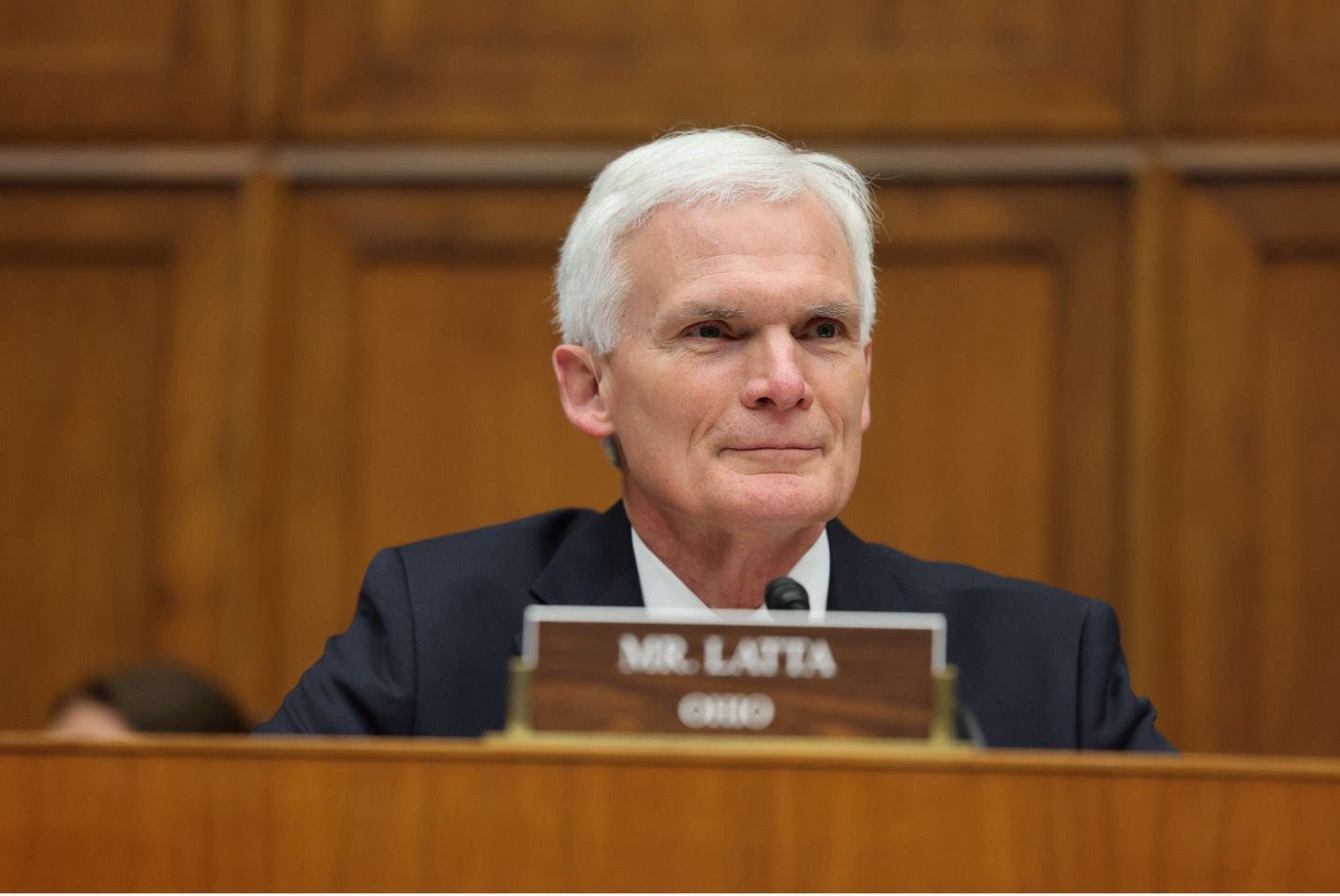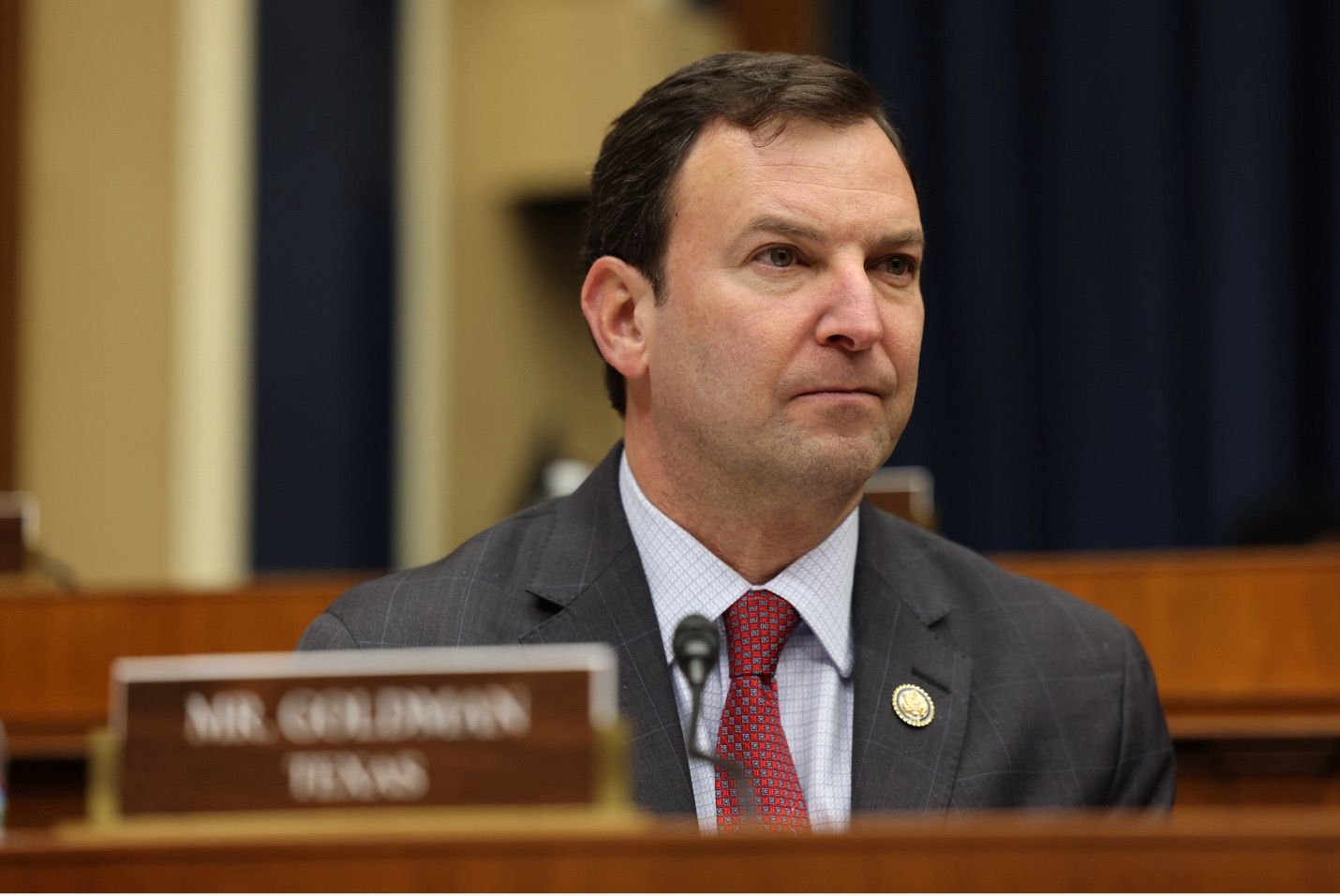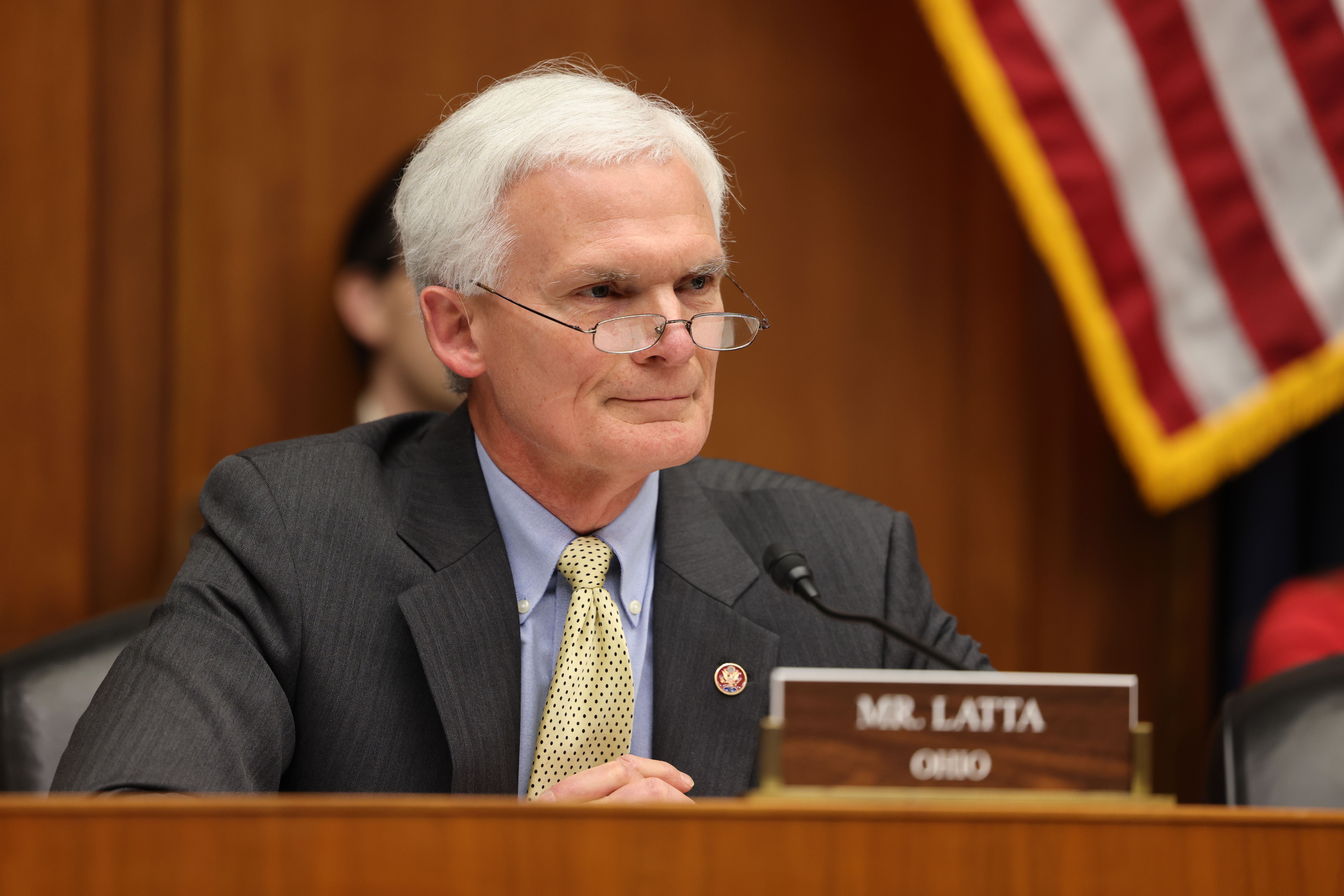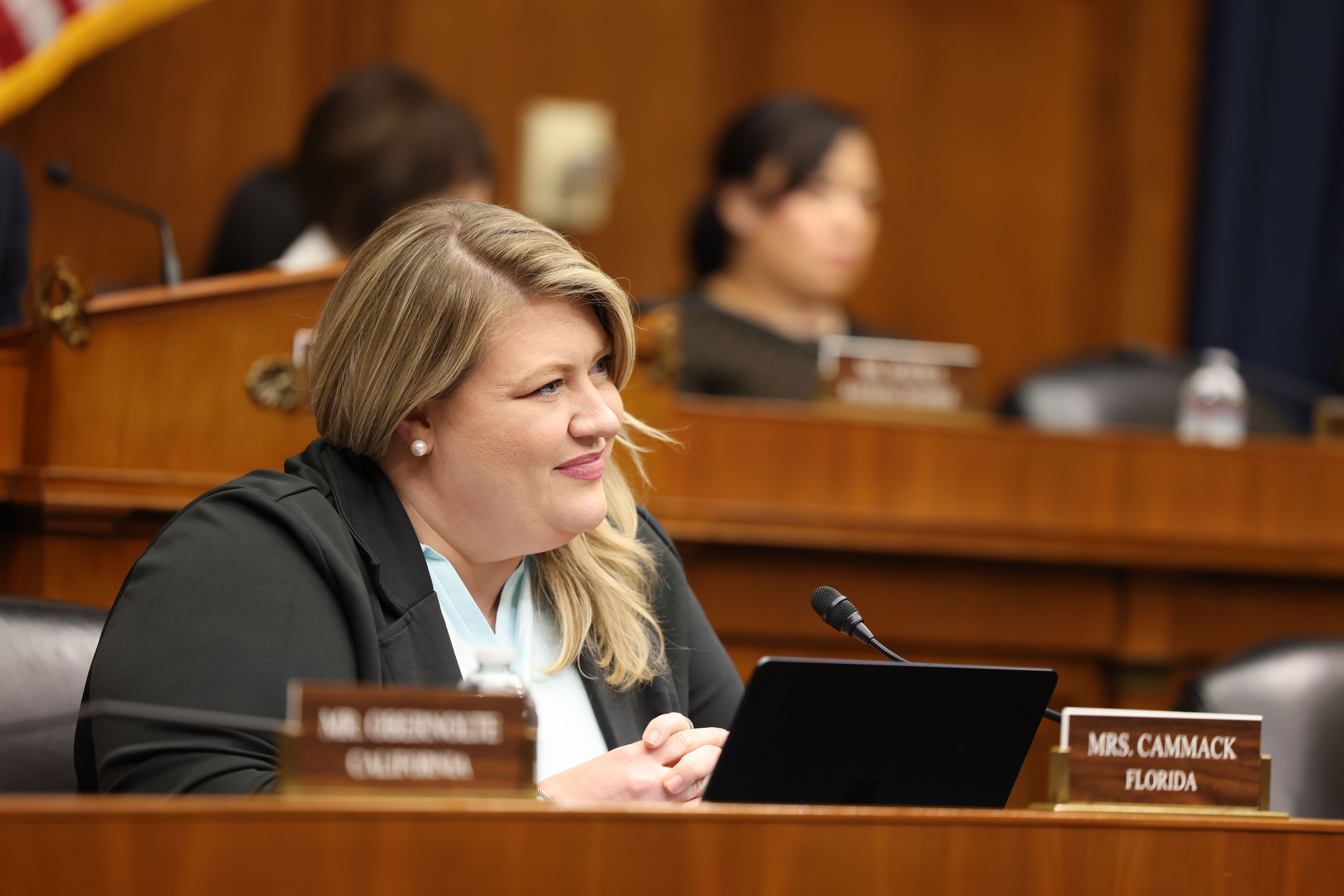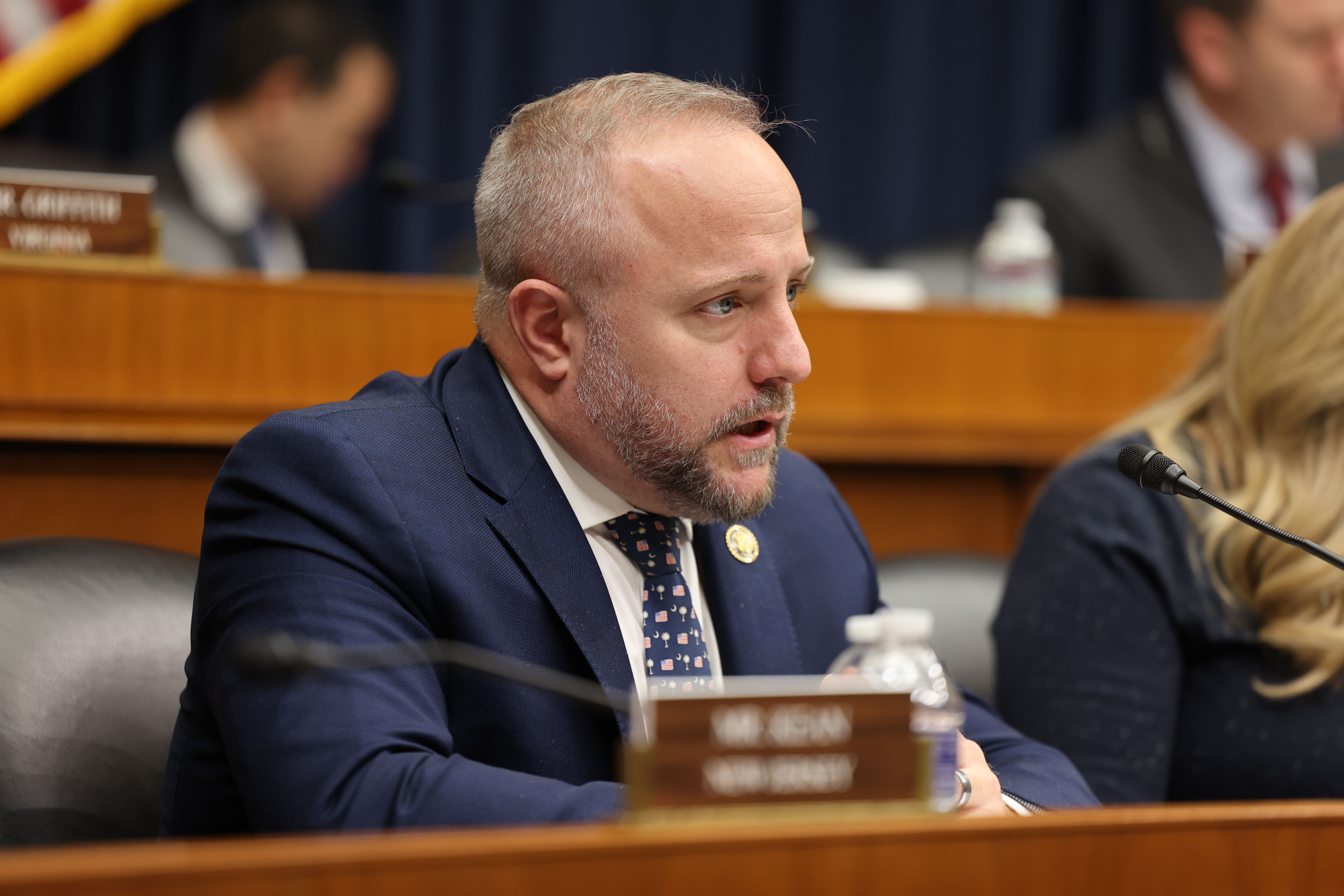WASHINGTON, D.C. – Today, Congressman Brett Guthrie (KY-02), Chairman of the House Committee on Energy and Commerce, Congressman Mike Johnson (LA-04), Speaker of the House of Representatives, Congressman Bob Latta (OH-05), Chairman of the Subcommittee on Energy, Congressman Richard Hudson (NC-09), Chairman of the Subcommittee on Communications and Technology, and Congressman Gabe Evans (CO-08), celebrated the passage of three bills advanced by the Committee on Energy and Commerce to make our grid more reliable, lower energy costs for hard-working families, and get America back to building infrastructure.
H.R. 3638, the Electric Supply Chain Act, introduced by Chairman Latta (OH-05), H.R. 3668, the Improving Interagency Coordination for Pipeline Reviews Act, introduced by Chairman Hudson (NC-09), and H.R.3628, the State Planning for Reliability and Affordability Act, introduced by Rep. Evans (CO-08), would help to provide essential information about our bulk power system, modernize the federal permitting process to expand our natural gas pipeline capacity, and ensure states are prioritizing the baseload power needed to keep the lights on.
Attributable to Congressman Brett Guthrie (KY-02), Chairman of the House Committee on Energy and Commerce:
“Since the beginning of this Congress, our Committee has fought to unleash the reliable and affordable energy that American families need,” said Chairman Guthrie. “These bills will help safeguard our energy security by bringing more baseload power online, strengthening our grid, and modernizing the federal permitting process. Thank you to Subcommittee Chairmen Latta and Hudson, and Congressman Evans, for your work on these vital pieces of legislation.”
Attributable to Congressman Mike Johnson (LA-04), Speaker of the House of Representatives:
“House Republicans continue to implement a pro-growth agenda that puts hard hats back on American workers, gets shovels in the ground, and unleashes the economic potential our nation has been denied for years by Democrats’ waste, fraud, and abuse,” said Speaker Johnson. “Republicans are ending the era where unelected regulators and radical activist lawyers weaponize bureaucracy and misuse laws like the Clean Water Act to block economic development and restrict opportunity in America.
“For too long, Washington’s paralysis and partisan climate red tape has driven up costs, drawn-out reviews, and delayed construction of roads, pipelines, factories, and critical infrastructure. This week, House Republicans delivered commonsense deregulation and long-overdue reforms to repair a broken permitting system and remove barriers that have held America back. These bills codify more of President Trump’s executive orders and help unlock the full benefits and historic investments within our Working Families Tax Cuts. Republicans continue to advance pro-growth policies that expedite development, empower American industry, and create conditions for long-term competitiveness and prosperity.”
Attributable to Congressman Bob Latta (OH-05), Chairman of the Subcommittee on Energy:
“Energy security is national security, and this bill brings us one step closer to unleashing American energy dominance,” said Chairman Latta. “The Electric Supply Chain Act will strengthen the reliability of our electric grid, secure our electric grid supply chains, and ensure we can power the artificial intelligence data centers of the future. Together, these efforts reinforce American-led energy production and security across the board. I’m grateful to my House colleagues for supporting this bill, and I urge the Senate to act on this critical legislation.”
Attributable to Congressman Richard Hudson (NC-09), Chairman of the Subcommittee on Communications and Technology:
“Delays in the construction of new natural gas pipelines drive up energy prices,” said Chairman Hudson. “My bill makes long-overdue modernizations to the permitting process by streamlining the regulatory authority of FERC. This makes sure the environment is protected, but no single state can arbitrarily block the construction of new pipelines.”
Attributable to Congressman Gabe Evans (CO-08):
“For years Colorado’s ruling Democrats have pushed out-of-touch policies and burdensome regulations that have led to skyrocketing energy bills and increased financial strain, resulting in further mental and physical stress on hard-working families across the state,” said Congressman Evans. “This legislation puts Coloradans first by holding state regulatory entities like Colorado Public Utilities Commission accountable by new federal standards, to ensure they are focused on considering energy reliability and affordability. I’m proud to lead the charge on legislation that lowers costs, uplifts working-class Americans, and strengthens our nation's energy dominance.”
BACKGROUND:
H.R. 3638, the Electric Supply Chain Act – Rep. Latta (OH-05)
- The bill would direct the Department of Energy to conduct periodic assessments of supply chain constraints or vulnerabilities that could impact the bulk power system.
- The Biden-Harris Administration’s misguided energy agenda furthered our reliance on adversarial nations like China for critical materials and manufacturing for wind turbines, solar panels, and grid components that are needed for intermittent generation resources.
- As our nation’s electric system is under strain from premature retirements of baseload power and historic demand increases from manufacturing and technology, we must ensure our federal government and policy makers are equipped with the necessary tools to protect the affordability and reliability of the bulk power system.
H.R. 3668, the Improving Interagency Coordination for Pipeline Reviews Act – Rep. Hudson (NC-09)
- Under current law, the Federal Energy Regulatory Commission (FERC) is designated as the lead agency for coordinating necessary environmental reviews and associated federal authorizations for interstate natural gas pipelines.
- Unfortunately, pipeline infrastructure approvals are often delayed due to a lack of coordination—or inaction—among states and other federal agencies involved in the process. In 2026, the U.S. Energy Information Administration expects natural gas demand to reach an all-time. Now more than ever, it is critical we expand our natural gas pipeline capacity to meet that demand.
- This legislation modernizes the federal permitting process for interstate natural gas pipelines by bolstering FERC’s role as the lead agency for environmental reviews as the coordinator of Clean Water Act Section 401 water quality reviews. This legislation will help lower energy costs, provide natural gas to power our economy, and strengthen our nation’s energy security.
H.R. 3628, the State Planning for Reliability and Affordability Act – Rep. Evans (CO-08)
- This legislation would require state Public Utility Commissions to consider requirements for utilities to have sufficient generation from reliable and dispatchable energy sources, such as natural gas, nuclear, coal, and hydropower, over a 10-year period.
- The ongoing reliability crisis facing our nation stems from Democrat policies designed to drive out baseload generation in favor of intermittent wind and solar, harming our ability to onshore manufacturing and burdening households with higher costs.
- Running a grid on wind and solar is akin to paying for two parallel grids, in part, because these energy sources require backup resources when the wind does not blow or the sun does not shine. Residential ratepayers bear the financial burden of these choices.
